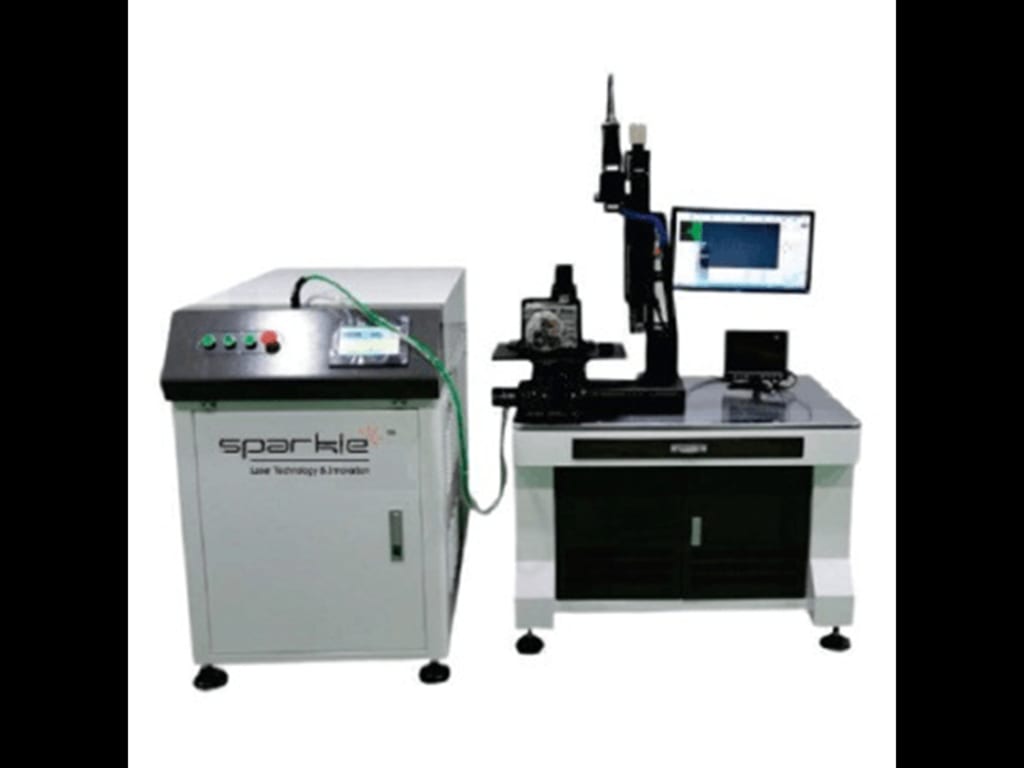
Fiber welding machines are revolutionizing how we handle materials in various industries. These machines are designed to fuse optical fibers, creating a seamless connection that's essential for high-speed data transmission. But their application extends far beyond just telecommunications.
Importance of Fiber Welding in Modern Industry
From medical devices to aerospace engineering, fiber welding has become a cornerstone of modern manufacturing processes. This technology ensures the reliability and efficiency of countless products and systems that we rely on every day.
Understanding Fiber Welding Machines
Definition and Basic Concept
A fiber welding machine is a specialized device used to join optical fibers end-to-end, creating a continuous fiber optic path. This process is crucial for maintaining the integrity of data transmission in fiber optic cables.
How Fiber Welding Machines Work
These machines use high precision lasers to align and fuse the ends of fibers. The process involves carefully aligning the fibers, applying heat to melt them slightly, and then fusing them together. The result is a strong, low-loss connection.
Key Components of Fiber Welding Machines
Laser Source: Provides the necessary heat for welding.
Alignment Mechanism: Ensures precise alignment of fiber ends.
Cooling System: Prevents overheating during the welding process.
Control Panel: Allows operators to set parameters and monitor the process.
Types of Fiber Welding Machines
Manual Fiber Welding Machines
These machines require significant operator involvement. They're ideal for small-scale operations where flexibility is more important than speed.
Semi-Automatic Fiber Welding Machines
Combining manual and automatic features, these machines offer a balance between control and efficiency. Operators can manage critical steps while automated processes handle repetitive tasks.
Fully Automatic Fiber Welding Machines
Designed for high-volume production, these machines operate with minimal human intervention. They provide consistent results, making them perfect for industries that require high precision and efficiency.
Advantages of Using Fiber Welding Machines
Precision and Accuracy
Fiber welding machines deliver unmatched precision, ensuring optimal alignment and minimal signal loss. This precision is crucial in applications like telecommunications where even minor errors can lead to significant performance issues.
Efficiency and Speed
These machines significantly reduce the time needed to join fibers compared to manual methods. Automated machines, in particular, can perform multiple welds quickly, enhancing overall productivity.
Versatility in Applications
Fiber welding machines are used in various industries, from telecommunications to medical devices, demonstrating their versatility and adaptability.
Enhanced Safety Features
Modern fiber welding machines come with advanced safety features, such as automatic shut-off systems and protective enclosures, to ensure safe operation.
Applications of Fiber Welding Machines
Telecommunications Industry
In telecommunications, fiber welding machines are essential for creating high-speed internet connections. They ensure the integrity and performance of fiber optic networks.
Medical Device Manufacturing
Fiber welding is used in the production of medical devices that require precise and reliable connections, such as endoscopes and surgical instruments.
Automotive Industry
In the automotive sector, fiber welding machines help produce various components, including sensors and communication systems, that rely on fiber optics.
Aerospace and Defense
These machines play a critical role in the aerospace and defense industries, where they are used to manufacture advanced communication and navigation systems.
Other Industrial Applications
Fiber welding machines are also used in industries like manufacturing, where they help create robust, high-performance products.
Choosing the Right Fiber Welding Machine
Assessing Your Specific Needs
Before purchasing a fiber welding machine, consider your specific requirements, such as the type of fibers you work with and the volume of production.
Budget Considerations
Fiber welding machines can be a significant investment. It's essential to balance your budget with the features and capabilities you need.
Evaluating Machine Specifications
Look for machines with specifications that match your needs, such as laser power, alignment accuracy, and automation level.
Brand Reputation and Support
Choose a reputable brand that offers robust customer support and service options. This ensures you can get help if you encounter any issues with your machine.
Maintenance and Care of Fiber Welding Machines
Routine Maintenance Procedures
Regular maintenance is crucial for keeping your fiber welding machine in optimal condition. This includes cleaning, calibration, and checking for wear and tear.
Troubleshooting Common Issues
Familiarize yourself with common issues, such as alignment problems or overheating, and learn how to troubleshoot them effectively.
Importance of Professional Servicing
While regular maintenance can be done in-house, it's important to have your machine professionally serviced periodically to ensure it continues to operate correctly.
Future Trends in Fiber Welding Technology
Advances in Automation
The future of fiber welding technology lies in increased automation. Advances in robotics and AI are making machines more efficient and less reliant on human intervention.
Integration with AI and Machine Learning
AI and machine learning are being integrated into fiber welding machines to enhance precision, predict maintenance needs, and optimize performance.
Eco-friendly and Energy-efficient Innovations
As sustainability becomes a priority, fiber welding machines are being designed to be more energy-efficient and environmentally friendly.
Conclusion
Recap of Key Points
Fiber welding machines are essential tools in many industries, offering precision, efficiency, and versatility. They play a crucial role in ensuring the reliability and performance of fiber optic connections.
Final Thoughts on the Importance of Fiber Welding Machines
Investing in a fiber welding machine can significantly enhance your production capabilities, whether you're in telecommunications, medical device manufacturing, or any other industry that relies on fiber optics.
About the Creator
Enjoyed the story? Support the Creator.
Subscribe for free to receive all their stories in your feed. You could also pledge your support or give them a one-off tip, letting them know you appreciate their work.





Comments
There are no comments for this story
Be the first to respond and start the conversation.